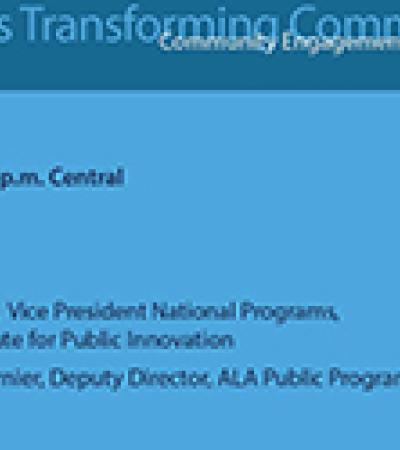Ground rules, sometimes called group agreements, are a list of terms that participants agree to follow—and the facilitator agrees to uphold—during a conversation.

For some, the idea of ground rules feels childish—why should adults need rules for how to talk with one another? However, we can all recall a time when we’ve seen a conversation gone awry. Ground rules help establish expectations for how people will talk with one another and offer a tool for helping to maintain an open line of communication.
There is no one set list of ground rules that facilitators should follow. Good ground rules can be adapted to the situation or group, and participants can help create or modify them.
When setting ground rules, it’s important for you as the facilitator to:
- Make it clear that the group is here to discuss, not debate or argue.
- Outline what it means to talk respectfully: listening to one another, not making assumptions about others’ statements, asking questions, etc.
- Clarify the goals in mind for the meeting/conversation. Are you making a decision? Exploring options? Learning more about one another?
- Describe your role as a facilitator. Will you participate in the conversation or just lead them through it?
Time limits
You may wish to include a time limit for comments in your ground rules, particularly when you anticipate participants may have a hard time keeping comments brief or as a measure to support you in addressing dominant participants. Adding a ground rule such as “comments will be kept brief—no more than a minute or two” will set an expectation for brevity.
A caution: do not get mired in the time limits. They should be used as a general timeframe, not a strict rule. It will be clear when someone is going on too long. If you feel the participants will take a specific time limit too seriously, use a more general ground rule such as “keep your comments brief so others may speak.”
Personal stories can take a bit more time to share. If your conversation is centered around stories and experiences, time limits may not be appropriate.
Introducing the ground rules
At the outset of a conversation, the facilitator should welcome participants and introduce themselves before outlining the ground rules.
Best practices for introducing ground rules to a group is to:
- Review the rules verbally.
- Provide the rules in writing. This can be done via a handout, posted on a wall, or projected on a screen.
- Introduce them as a set of guidelines to help set expectations for the conversation.
- Ask participants if they have any questions about the ground rules you just covered.
Adding ground rules from participants
Depending on the group and the conversation, you may wish to ask participants for suggestions of additional ground rules. This gives participants the chance to suggest additional rules that they feel will ensure a respectful and productive conversation.
This will likely work best when facilitating a small group and/or a group that will meet multiple times. With larger groups or one-time events, using the ground rules you establish in advance is usually sufficient.
Once an additional ground rule is suggested, ask participants if they would be willing to agree to it. You should always ask participants if they agree to abide by the ground rules set forth at the start of the meeting. This will ensure that if any participant breaks the ground rules, you can refer back to them as a shared agreement.
Be sure to add any new ground rules or agreements to your list. If posted on the wall, write it in on the paper or add a second piece of paper for the additional rule(s). You can ask participants to add it to their ground rules handout, if you are using one.
Examples of ground rules
There are many different conversation models with many different ground rules. Below are several examples. Borrow from them or mix and match to find the rules that work for your group!
Ground rules rom ALA's Office for Diversity, Literacy & Outreach Services.
Conversation Cafe Agreements
- Open-mindedness: Listen to and respect all points of view.
- Acceptance: Suspend judgment as best you can.
- Curiosity: Seek to understand rather than persuade.
- Discovery: Question assumptions, look for new insights.
- Sincerity: Speak from your heart and personal experience.
- Brevity: Go for honesty and depth but don’t go on and on.
Living Room Conversations Ground Rules
- Be Curious and Open to Learning. Listen to and be open to hearing all points of view. Maintain an attitude of exploration and learning. Conversation is as much about listening as it is about talking.
- Show Respect and Suspend Judgment. Human beings tend to judge one another; do your best not to. Setting judgments aside will better enable you to learn from others and help them feel respected and appreciated.
- Look for Common Ground and Appreciate Differences. In this conversation, we look for what we agree on and simply appreciate that we will disagree on some beliefs and opinions.
- Be Authentic and Welcome that from Others, Share What’s Important to You. Speak authentically from your personal and heartfelt experience. Be considerate to others who are doing the same.
- Be Purposeful and to the Point. Notice if what you are conveying is or is not “on purpose” to the question at hand. Notice if you are making the same point more than once.
- Own and Guide the Conversation. Take responsibility for the quality of your participation and the conversation by noticing what’s happening and actively support getting yourself and others back “on purpose” when needed.
National Issues Forums Ground Rules
- The moderator(s) will guide the discussion but remain neutral.
- Everyone is encouraged to participate. No one dominates.
- The discussion stays focused on the issue at hand.
- Maintain an atmosphere for discussion and analysis of our options. This is a discussion, not a debate.
- Listening is as important as talking.
- We will work together toward making a decision.
General Meeting Ground Rules
- Keep an open mind and be open to learning something new.
- Be respectful of others.
- Ask questions to gain understanding/clarity.
- Be on time.
- Give constructive feedback.
- Be open to receiving constructive feedback.
To learn more about facilitating virtual or in-person conversations, check out ALA's "Leading Conversations in Small and Rural Libraries" facilitation guide.



